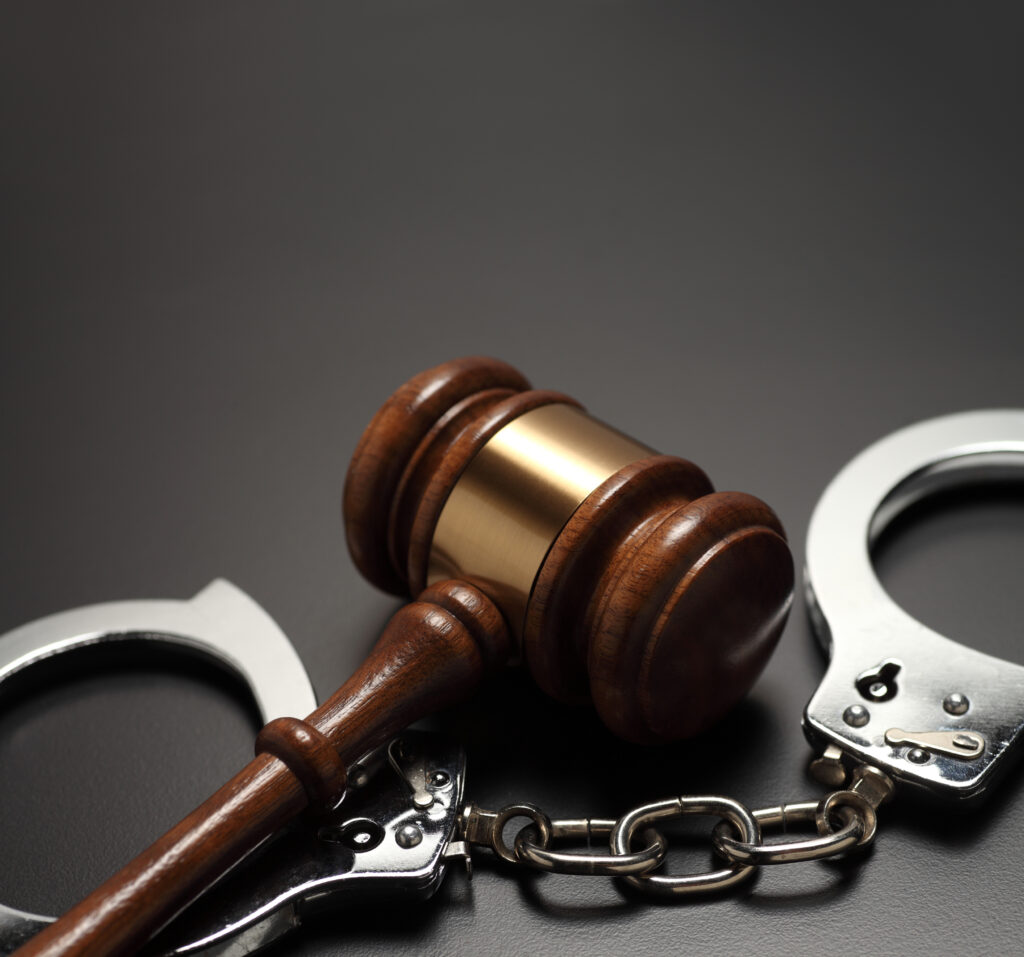Lambda Legal has a long history of taking action to end anti-LGBT hate violence, but we also have a long history of opposing victimization of LGBT people and people living with HIV within or at the hands of the criminal justice system.
This blog post was co-authored by Lambda Legal Fair Courts Project Community Educator RJ Thompson, Esq., and Eric Lesh, Esq., Lambda Legal Fair Courts Project Manager.
April 19-25 is National Crime Victims’ Rights Week, started in 1981 to increase public awareness of the rights of crime victims and services available to victims of a crime.
Who and what comes to mind upon hearing the word “victim”?
For some, “victim” connotes a person who has been the target of violence at the hands of individuals, perhaps through intimate partner violence or bias-motivated violence. Lambda Legal has a long history of taking action to end anti-LGBT hate violence, but we also have a long history of opposing victimization of LGBT people and people living with HIV within or at the hands of the criminal justice system. Thousands of people in this country are victimized within institutions that are supposed to protect and promote our human rights, including law enforcement and schools.
Recently, Lambda Legal conducted a national survey to explore government misconduct by the police, courts, prisons and school security against LGBT people and people living with HIV in the U.S. A total of 2,376 people completed the individual survey, and the results were alarming.
Here are 4 ways in which LGBT people and people living with HIV are victimized by law enforcement, courts, schools, jails and prisons:
- Mistreatment by Jail and Prison Staff
LGBT people and people living with HIV are particularly vulnerable and often targeted for harassment and violence when incarcerated. In a climate that is all too commonly unsafe, prison guards and other staff often contribute to and exacerbate the danger by committing acts of violence against LGBT and HIV-positive people in their custody and by failing to protect them from dangerous situations. Among respondents who reported being incarcerated within the last five years in our Protected and Served? survey:
- 7 % of respondents reported being sexually assaulted by jail or prison staff
- 12 % reported being physically assaulted by staff
- 27 % reported being sexually harassed by staff
- Criminalizing People Living With HIV
HIV criminalization is a striking example of how the government engages in discrimination that perpetuates misinformation, stereotypes and unfounded fears about HIV. People living with HIV have been imprisoned, classified as felons and forced to register as sex offenders because our society imposes unjustified and unnecessary criminal prohibitions on them that are based on outdated and inaccurate information regarding HIV. For example, defendants have been charged with crimes as serious as attempted murder and even bioterrorism for spitting or biting, despite the fact that saliva does not transmit HIV.
- The School-to-Prison Pipeline
The negative impact of school disciplinary actions that push students out of schools and into juvenile justice systems provides another example of systemic victimization of LGBT people.
- LGBT students face harsher punishments for similar infractions than their heterosexual or gender-conforming counterparts.
- Inadequate protection by school officials against bullying and harassment of LGBT students and students perceived to be LGBT, may lead those students to take matters into their own hands, ultimately resulting in higher rates of school conflict, discipline and placing young people in the juvenile detention system.
- LGBT students who do not feel safe at school are more likely to be truant, to drop out, and to engage in other risky behaviors such as substance abuse.
- Bias in the Courtroom and State-Sanctioned Killing
Too often, LGBT people and people living with HIV are forced to navigate courts in which they feel they are perceived as criminals based solely on their identity or HIV status. When homophobia, biphobia or transphobia is allowed in criminal court proceedings, the consequences can be life-altering – or even deadly, for LGBT defendants in capital cases. While more data is needed about the rates of discrimination based on gender identity, gender expression and sexual orientation in capital cases, there have been a number of documented instances, including examples like these:
- Wanda Jean Allen, an African American lesbian, who was the first woman executed in the state of Oklahoma. The prosecution attempted to influence her sentencing by emphasizing her gender expression, asserting that Allen “wore the pants in the family” and implying that Allen dominated her lover, despite the evidence that both women had abused each other.
The prosecutor in Calvin Burdine’s case stated during closing arguments that “sending a homosexual to the penitentiary certainly isn’t a very bad punishment for a homosexual.” Burdine’s lawyer did not object, and himself called the codefendant in the case a “tush hog.”Because the legal system is fallible, because of the effects of bias on courts and because the death penalty is irreversible, Lambda Legal opposes the death penalty in all cases. Lambda Legal is proud to be a partner in the National Coalition to Abolish the Death Penalty’s (NCADP) 90 Million Strong Campaign.

